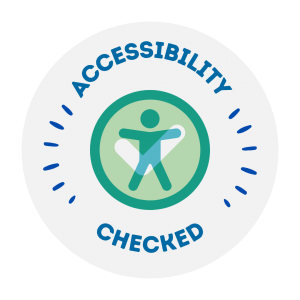Toothache treatment at home
Dissolve a teaspoon of sea salt in a cup of boiling water and wait for it to cool slightly until there is no longer any danger to your mouth and burns with hot water. Then fill your mouth with salt water and swirl it in your mouth for at least 30 seconds or more, then rinse it out.
Then repeat this process and this time roll with it for a few seconds before pouring out the solution. Do this three to five times a day to relieve pain and see a dentist.
If you do not have sea salt, you can use regular salt because this type of salt also has a special disinfection, but does not contain any minor minerals that relieve pain.
Keep in mind that the pain may return a few days later, and this time it may be even more severe. In this case, see a doctor immediately.
Avoid hot or cold foods and drinks
For some people, toothache can be caused by exposure to very hot or cold foods and drinks. Nerve roots are overly sensitive and can cause the most pain. In these cases, avoid hot tea and coffee, sugary drinks with ice. Do not freeze if you have a toothache – this will probably help reduce inflammation, but it will most likely irritate the nerve roots and increase the pain. Avoid eating kebabs, soups and hot broth, at least until cool.
The first sign of tooth decay may be the feeling of pain in the teeth while eating something very hot or cold.
In addition to ice molds, chewing hard nuts, seeds and beans can also make toothache worse and possibly lead to more damage to broken teeth.
Avoid eating any very sweet foods
In addition to extreme temperatures (hot / cold), foods and beverages that are too sweet can also cause or exacerbate toothache. Refined sugar can further damage caries caused by tooth decay and uncovered nerve channels, so eating fruits is usually okay. On the other hand, you should not eat Pashmak, toffee, chocolate bar, razor, donut, ice cream or very sweet foods. Also avoid beverages such as fizzy drinks and sweetened iced tea or coffee.
Hard chocolates can cause toothache more than ever: they are too sweet and so hard that they can damage cracked or weak teeth.
Even healthy snacks, such as granola bar, can be a problem for toothaches due to the presence of honey, sweet raisins and dates, and worst of all, hard nuts.
Regular brushing and flossing
Learn proper oral hygiene practices to prevent new or worsening damage and reduce bad breath. These steps will keep your teeth healthy, strong and painless.
Brush twice a day and floss once a day. See your dentist at least once a year or even every six months for a checkup. Your dentist can detect any problems with your teeth.
While regular brushing and flossing can not go back in time and repair the damage done to the tooth, it can prevent future caries and also be a solution to reduce bone calculus before tooth decay.
Try to have a toothbrush with you in your bag or car, so you can use your toothbrush anywhere. If you can not brush, at least rinse your mouth with water.
Use special toothbrushes and toothpaste
If toothache is caused by tooth sensitivity, consider using a toothbrush and toothpaste that are designed specifically for overly sensitive teeth. You can find such products in most pharmacies.
Sensitive teeth usually cause the gums to recede. As the gums shrink, the dentin beneath the surface of the enamel remains uncoated. Sensitive toothpastes are designed to clean this area of the teeth with softer ingredients.
Use a toothbrush with soft bristles. If your toothache is related to retraction of the gums, a soft-bristled toothbrush can be used to preserve more tissue from your normal gums.
Medium and rough toothbrushes are usually good for caries, but soft toothbrushes are better options for those with gum pain or similar problems.
Consult your dentist
Each brief shot of pain in the mouth does not require a dental examination, but many toothaches usually do not go away and become more aggressive over time.
Toothache that lasts for more than a few days; Symptoms of infection, such as excessive swelling, increasing pain when biting, inflamed red gums and / or the presence of white purulent discharge with blood; Difficulty breathing or swallowing; Any fever with pain. Your dentist will examine your mouth and will probably take a radiograph of your teeth. Tooth decay, abscesses, gingivitis, cracked teeth or even rough abrasions are all common causes of pain that can be treated in a dentist’s office. If you or your child has recently experienced oral trauma, talk to your dentist.




